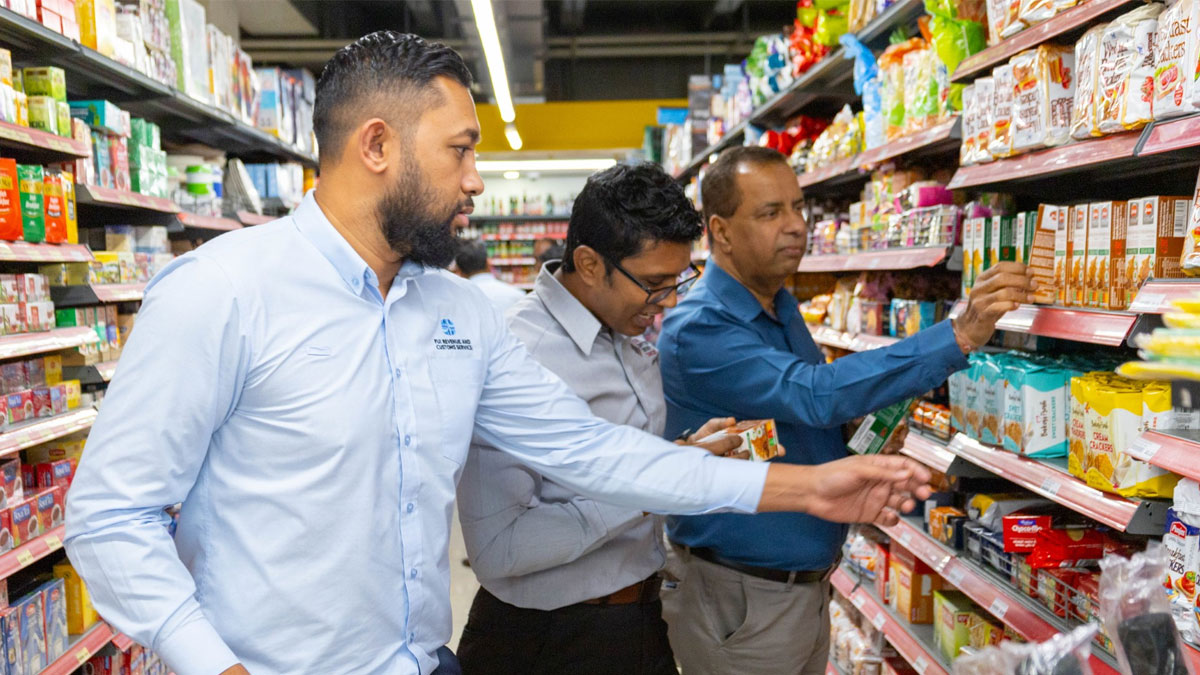
The Fiji Revenue and Customs Service in collaboration with the Fijian Competition and Consumer Commission has formed a Price Surveillance Taskforce and the two organisations have intensified inspections and are closely monitoring the market to ensure that the changes in the VAT rates and customs duties announced in the 2023/2024 National Budget are reflected correctly in the final prices and consumer interests are protected.
In a joint statement by FRCS and FCCC, they say effective from 1st August, the three VAT rates have been replaced with a simplified two VAT rate system.
They say the 9 percent VAT has increased to 15 percent while the 0 percent VAT rate has been maintained.
They say the 21 zero-rated VAT items have been increased to 22 items with the addition of prescription medicine and prescription drugs.
Additionally, import duties have been reduced on sheep and lamb meat, prawns, ducks, corned meat of lamb, sheep and beef, canned mackerel, canned tomatoes and chicken portions.
The FRCS team has also been conducting analysis of shipping and other related costs to verify the pattern of price changes.
FRCS Chief of Staff, Shavindra Nath says that it is important to ensure that the intention of the budget policies announced by the government is achieved.
He says when taxes or duties are reduced, the intent is to reduce the prices of these products and promote consumer choices and if the prices are not reduced, then it defeats the purpose of these changes.
Nath says that is why it is critical for agencies such as FRCS and FCCC to monitor that these changes are correctly reflected in the prices.
He adds the VAT zero rating has been maintained and in fact, increased with the inclusion of prescribed medicine and drugs and the increase in VAT from 9 percent to 15 percent should not impact the prices of these zero-rated items.
The FRCS Chief of Staff says they are aware that a large majority of retailers wish to comply with the law, and they are willing to help and guide them so that they can implement these changes correctly, however, instances of deliberate non-compliance will be dealt with strongly.
FCCC CEO, Joel Abraham says cost of living is a matter that resonates deeply within the communities and it is not just an economic issue; it's a fundamental aspect of daily life that affects families across Fiji.
Abraham says the collaboration between FCCC and FRCS on Price Surveillance is more than a regulatory step; it's an initiative aimed at safeguarding the welfare of all citizens.
He says the new VAT system and duty reductions should make essential goods more affordable and they are committed to ensuring these changes are accurately reflected in market prices, and any non-compliance will be met with decisive action.
He adds together with FRCS, they are working to ensure the government's intentions become real benefits for our people, focusing not just on compliance but on enhancing their quality of life.
Stay tuned for the latest news on our radio stations

